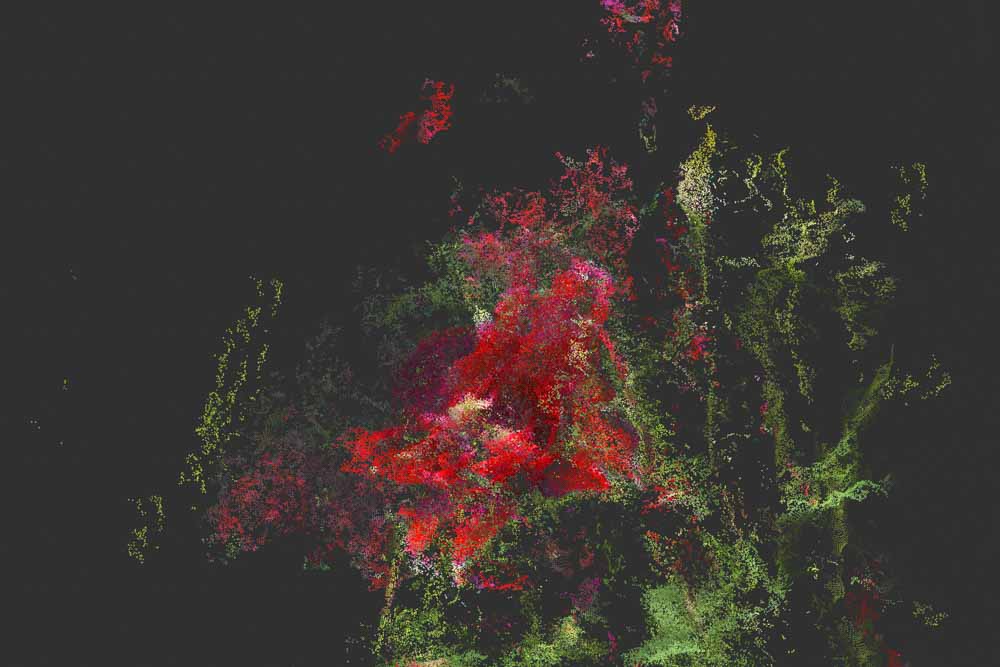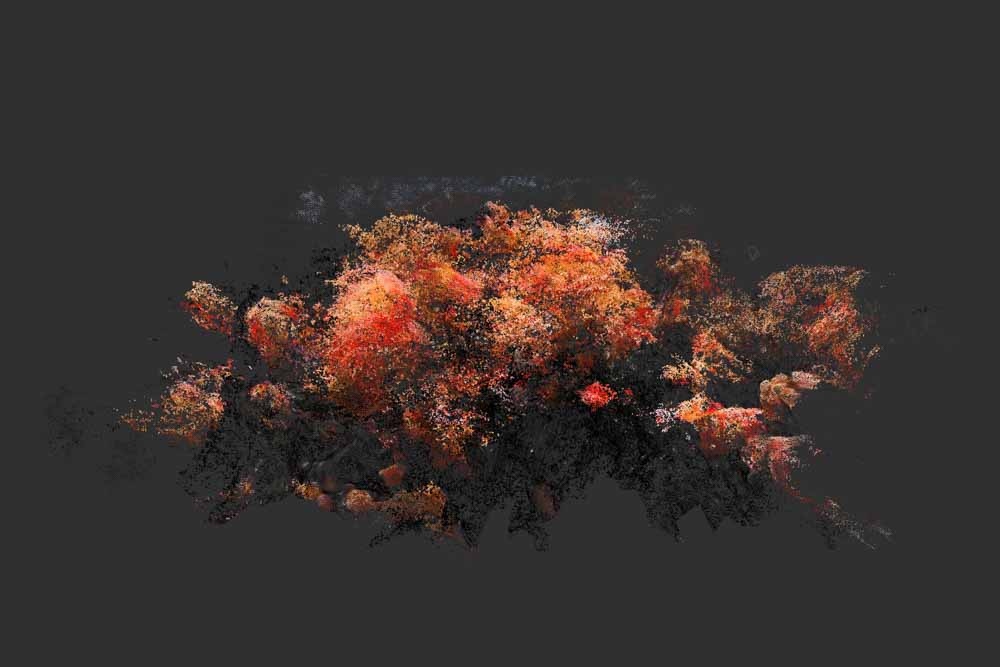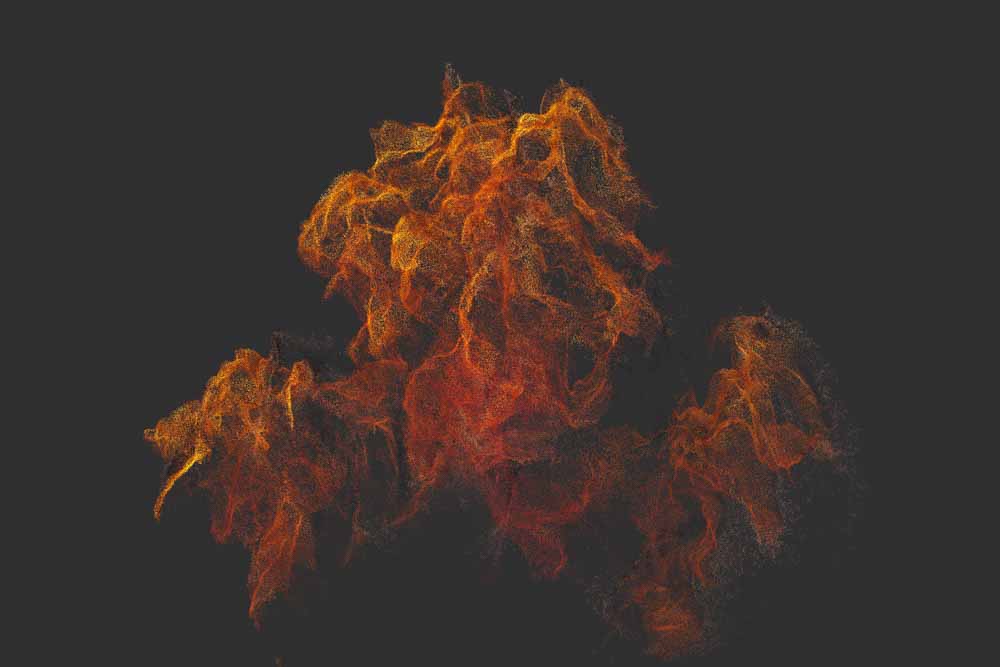Moonis Ahmad (b. 1992, Kashmir) is a visual artist whose practice transverses various media, including installation, sculpture, computer programming, sound, and video. His work conjures the afterlives of the dead and the deceased as a means to speculate the emergence of counter-worlds that challenge established states of power at the margins. These lives, which refuse to die, emerge as specters in his work, challenging the chronological understanding of time and the territorialization of space. Through such phantoms, Moonis speculates alternate ideas of time and being, intersecting various marginalities and temporalities to explore the human condition that is inherently at an outbreak and yet, in a constant state of invisibility and exception. In 2021, he completed his doctoral research at The University of Melbourne. Moonis has exhibited both nationally and internationally and has participated in various residential programs, including a three- month residency at Stadtgalerie & HSLU in Switzerland, organized by Pro Helvetia Swiss Arts Council. He was awarded the Schloss Solitude Fellowship, Germany for 2023-24. He was the recipient of the Arts House Makeshift Publics Programme 2022-23 in Melbourne, Australia, and the Foundation of Indian Contemporary Art’s Emerging Artist Award in 2017-18. He is one of the participating artists in Kochi Biennale 2025 edition. Currently, Moonis works between Kashmir and Melbourne.
Hafsa Sayeed Shah is an interdisciplinarian working on the intersection of sociology and political economy. She is currently a Writing Urban India Fellow, where her work explores thw gendered nuances of caste among Muslims in urban Kashmir. Hafsa holds a Ph.D. from the Indian Institute of Technology, Bombay, where her doctoral research examined the associational life of the Sheikh caste among Muslims in urban Kashmir. She completed her M.Sc. in Economics from the Gokhale Institute of Politics and Economics, Pune, and an M.Phil. in Social Exclusion an Inclusive Policies from Tata Institute of Social Sciences (TISS), Mumbai. Hafsa has worked as a field researcher with the economist Prof. Jean Drèze in Jharkhand and maintains a long-standing academic collaboration with Prof. Kakali Mukhopadhyay. Her recent publications have appeare in Contemporary Voice of Dalit and Contemporary South Asia, and she has two forthcoming book chapters, all of which engage with the theme of caste among Muslims in Kashmir. Hafsa’ intellectual pursuits extend into the visual arts, and she has presented collaborative works at national and international venues, including the India Art Fair and Notes on Tending (FICA, 2022, India), and Can You Hear My Voice at The Northern Centre for Contemporary Art (NCCA), Northern Territory, Australia, among others. Also a poet, her recent poems were published in Outlook India (2024).


